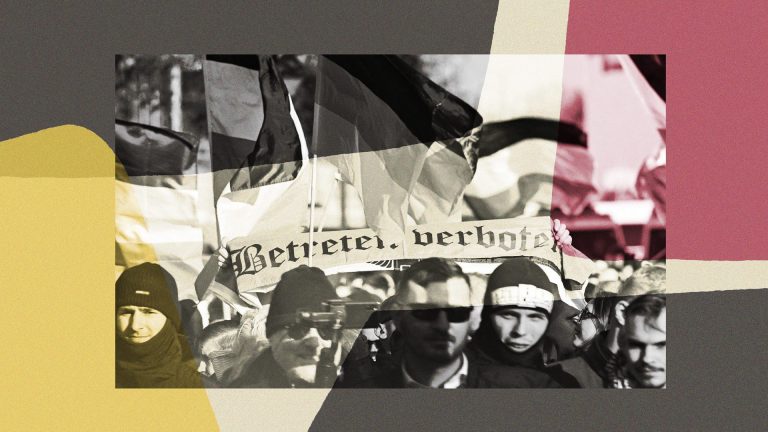Even if you skived geography entirely at school, the fact that Germany isn’t an island won’t come as a surprise. And yet, we seem to identify as one – despite nine land borders and all the legal and political complications that come with it.
Previously on Take Back Control – the German edition: before the election, Friedrich Merz promised that his government would crack down on irregular migration from day one. Big words. But to be fair, as chancellor he’s trying to deliver – arguing that it’s the only way to stop the AfD’s steady rise.
So, not long after taking office, his new interior minister, Alexander Dobrindt of the CSU (CDU’s Bavarian sister party), ordered beefed-up border checks. Controls, mind you, that the previous government had long insisted were neither possible nor useful – until they introduced them too, once the AfD was comfortably riding high in the polls.
Germany’s neighbours aren’t thrilled about us pressing pause on Schengen. Luxembourgish commuters sit in traffic, Polish truckers are stuck in queues. And migrants? Many just stroll across the Grüne Grenze, where there’s no Bundespolizei in sight.
Still, Dobrindt was unmoved: he decreed that even asylum seekers could be turned away at the border. And that’s where things get legally murky.
The German constitution is pretty clear: anyone persecuted for political, racial, religious or certain other reasons has an individual, enforceable right to asylum. However, there’s a caveat: if you enter Germany via a “safe third country” (read: any of our nine neighbours), that right no longer applies.
Straightforward? It would be, if not for European law. The Dublin Regulation says: the country where an asylum seeker first enters the EU is responsible for processing their claim. But let’s be honest – not everyone fancies settling in Italy, Greece or Romania.
Under Dublin rules, Germany has to let people in, check which state is responsible, then send them back. In practice, this regimen is a total failure.
First, because it dumps the burden on southern coastal EU countries. And second, because the “sending back” bit hardly ever works.
Exhibit A: in 2024, Germany submitted 12,841 requests to Italy to take back migrants first registered there. Italy formally accepted 10,402 of them. Actual number of returns? Three.
Why? In practice, the third countries don’t make it particularly easy to have the migrants returned to them, and if Germany misses the deadline, the case is ours. Missing the deadline happens all the time, mostly, because bureaucracy is overloaded.
According to UNHCR figures, Germany has taken in eight times as many migrants and refugees (including Ukrainians) as Italy – with only one and a half times the population.
Suggested Reading


Germansplaining: The AfD extremists
That, however, didn’t move the Berlin Administrative Court. In an urgent ruling, the judges stated that the pushback of three Somali asylum seekers at the Polish border was unlawful. Without a clear decision on which EU country is responsible, the court said, Germany can’t just turn people away, especially not without proving there’s an “emergency” that justifies suspending EU law.
The three Somalis are now in Berlin. Their cases are under review. But the court ruling calls into question the whole new refoulement strategy.
No matter – at least for now, the CDU/CSU are standing firm. Their coalition partner, the SPD, meanwhile, is split: its parliamentary group whip wants an end to pushbacks, but its ministers are keeping their heads down – knowing full well that many of their own voters support the U-turn in migration policy.
A recent poll showed over 60% approve of turning asylum seekers away at the border.
Meanwhile, the CSU is picking a fight with the refugee aid group Pro Asyl, which supported the three Somalis in their legal action. CSU MP Alexander Hoffmann claimed that one of them was of age during the first two attempts to enter Germany and suddenly underage on the third attempt, carrying identity documents showing signs of forgery.
All three conveniently had brand-new mobile phones with them, making it impossible to trace their travel route. “For me, this has all the hallmarks of a staged event by asylum activists,” he fumed. Pro Asyl vehemently denied the accusations and called them an “attack on our work”.
So what now? Merz is sticking to his policy. And for the moment, it’s keeping the AfD in check. But it’s anyone’s guess what’ll happen once the European courts get involved.




